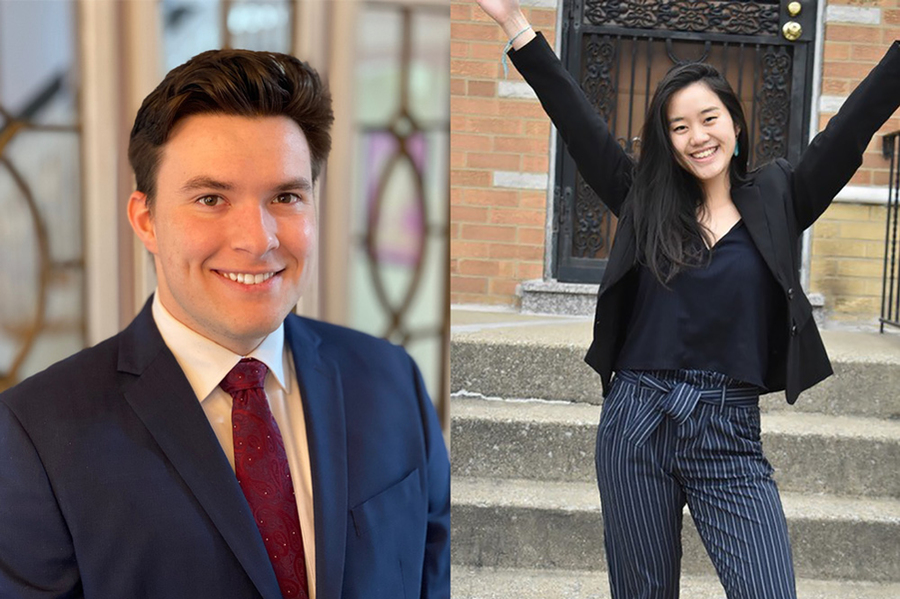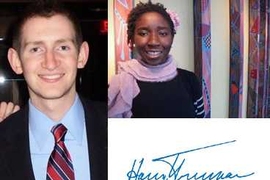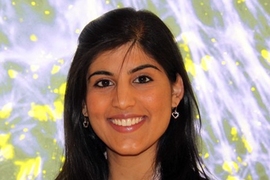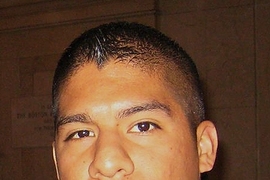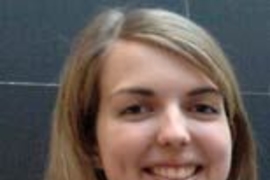MIT students Yu Jing Chen and Max Williamson have been selected as 2021 Truman Scholars. Truman Scholars demonstrate outstanding leadership potential, a commitment to a career in government or the nonprofit sector, and academic excellence.
Chen and Williamson join 62 other scholars who were selected from 845 candidates. MIT President L. Rafael Reif personally informed both students that they were selected for this competitive scholarship, telling them, “This year it [Truman Scholarship] was so competitive and this is so important, and we are so very very proud of you.”
Established by Congress in 1975 as a living memorial to President Harry S. Truman and a national monument to public service, the Truman Scholarship carries the legacy of our 33rd president by supporting and inspiring the next generation of public service leaders. For more than 40 years, the Truman Foundation has fulfilled that mission — inspiring and supporting Americans from diverse backgrounds to public service. Truman Scholars receive up to $30,000 toward graduate studies in the United States, as well as access to development programs such as the Truman Scholars Leadership Week, the Summer Institute, and other Truman Fellows events.
Chen and Williamson were supported by MIT’s Distinguished Fellowships team in Career Advising and Professional Development and MIT’s Truman Selection Committee. Kimberly Benard, assistant dean of Distinguished Fellowships, says, “While MIT has supported many finalists, Yu Jing and Max are MIT’s first winners in nine years. This is a testament to their civic mindedness, continuous service, and strong leadership skills. Both Yu Jing and Max are inspirational leaders who have transformed conversations in their respective communities, and we are proud that they will represent MIT as Truman Scholars.”
Chen, who hails from Chicago, is majoring in urban studies and planning with computer science. She is an active participant in MIT’s first-year Concourse community. Professor Anne McCants, the director of the program, states, “Yu Jing combines her deep curiosity about the world with her unusual capacity to listen attentively and nudge productively, all in the service of building community wherever she goes. In her first year with us in Concourse, we had the pleasure of watching her develop her own intellectual and social voice, at the same time that she helped other students to flourish.”
In the spring of her first year at MIT, Chen founded the MIT Asian American Initiative, which seeks to advocate on behalf of Asian Americans and increase civic engagement. Chen spearheaded efforts to create two murals, one that honors International Migrant Day and another that documents the Asian American experience, and also supported a magazine that is a collection of stories, poems, and art of individual immigration stories. In addition, she became a member of the First Generation and/or Low Income Working Group comprised of students, staff, and faculty looking to improve support for vulnerable students. Her activism on campus inspired her to run as vice president for the Undergraduate Association, a position she now holds. After Covid-19 hit, Chen rose to the occasion, advocating for funding for low-income students and the pass/fail-no record grading policy.
During summer 2019, Chen was accepted to the MIT International Science and Technology Initiatives (MISTI) program to India to work with the Information Retrieval and Extraction Lab at the International Institute of Information Technology Hyderabad. While there, she tested machine learning and natural language processing methods to combat online toxicity. Chen has also conducted research with the MIT Civic Data Design Lab, which applies data to improving the lives of citizens. Chen was tasked with scraping data from The New York Times to uncover the most pertinent concerns of city residents, which was then presented to New York City Council candidates.
This past summer, Chen did a remote internship with the City of Miami Beach Mayor’s Office as a Covid-19 Recovery Intern. She interviewed business owners and homeowner associations to understand the efficacy of their Covid-19 policies, and discover the challenges the city confronted with curbing the spread. She was also able to analyze and create visualizations of Florida’s Covid-19 data to inform city policy recommendations.
Williamson, who hails from Wilmington, Delaware, is an electrical engineering and computer science major and public policy minor. Williamson plans to use the Truman Scholarship to attend law school before embarking upon a career in government service.
Williamson accepted an internship with U.S. Senator Chris Coons from Delaware the summer after his first year, primarily drafting technology policy memos and performing constituent advocacy. At MIT, Williamson founded Engineers for Biden, MIT’s chapter of Students for Biden (and was also a fellow with Massachusetts for Biden), before the operation became fully remote due to Covid-19. Williamson quickly changed course, and established partnerships with regional schools, organized phone banks, and created roundtables with prominent Biden supporters. He even turned his garage in Delaware into a Biden sign-making workshop, creating large plywood signs to display.
Last fall, Williamson decided to take a leave from MIT to dedicate himself full time to Coons’ reelection efforts, and was offered the job of campaign data director. In this role, Williamson led the development of logistical software solutions and electorate analysis. After Coons’ successful reelection, Williamson was recruited to help New Castle, Delaware, launch a high-throughput genomics and Covid-test lab at Delaware State University with $6.5 million from CARES Act grants.
Williamson is a founding member and contributor to MIT’s Political Review, a student-run digital magazine for political thought. Williamson has also been part of MIT’s heavyweight rowing team, and through MIT Global Teaching Labs he designed and taught a comprehensive computer science curriculum in Italy.
Recognizing the importance of education and access, Williamson applied for a Priscilla King Gray Public Service Fellowship to pilot a preparatory computer science curriculum in collaboration with a Wilmington community center. Assistant Dean Alison Hynd from the PKG Center says, “Max has a real passion for his home state of Delaware and is using his MIT education to help the state's residents meet the opportunities and challenges of its new economic engines. With his PKG fellowship, he partnered with a local community center, and Max hopes this curriculum will serve hundreds of students in the coming years and serve as a pipeline between Wilmington’s underserved communities and its burgeoning tech industry. In the past year, he has also done extraordinary work to enable high-volume, low-cost Covid testing for the state. I fully expect to see Max representing Delaware in Congress in the future!"
